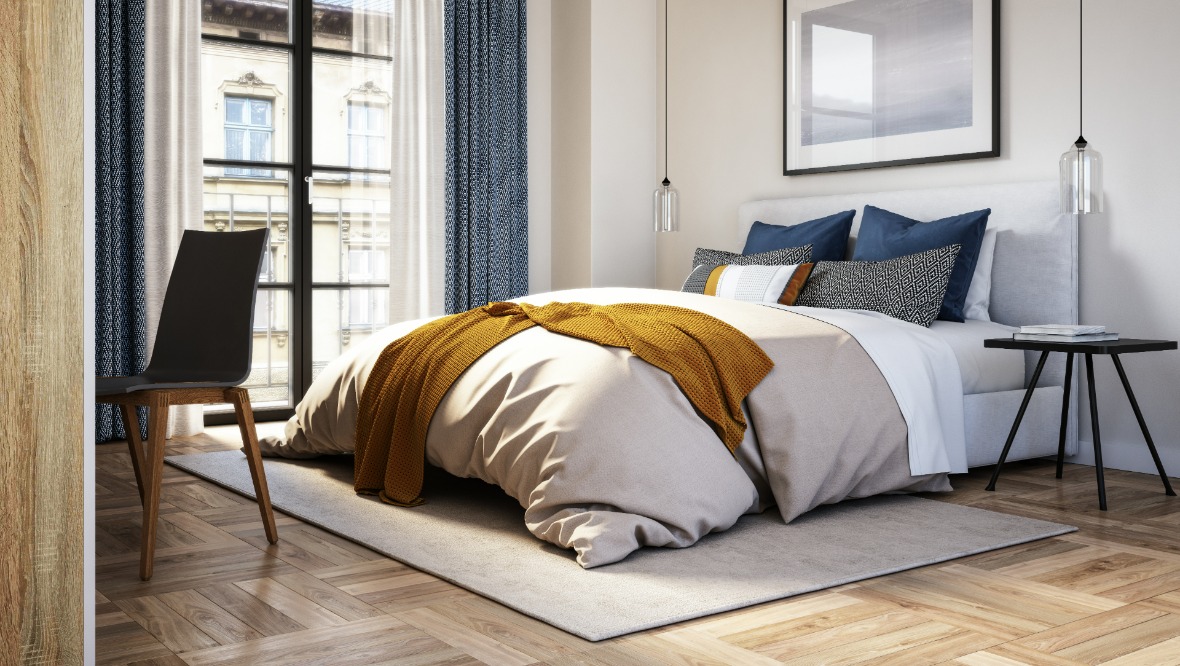The owners of a Glasgow Airbnb flat – which neighbours complained was “disruptive” – have lost an appeal against a council order to stop letting the property.
A resident within the block of flats in Carnoustie Street, Tradeston, reported the use of the apartment as short stay accommodation was “unsettling” and “at times threatening,” with allegations of drug use by guests.
Council officials investigating the complaint decided planning rules had been breached and told the landlords to cease using the property as a holiday let. Failure to comply can lead to prosecution or a fine.
But the owners, Rhona Lamont and Andrew Mackinnon, appealed to Scottish Ministers.
They claimed letters from the council had been sent to the wrong address and the short-term let complied with planning guidance.
However, an independent reporter, Trevor Croft, appointed by the Scottish Government, has now upheld the original decision.
The flat was advertised on Airbnb as “a “spacious and stunning three-bed duplex penthouse-style apartment within minutes’ walk of Glasgow city centre, the Hydro and SECC”.
It offered accommodation for up to eight guests, with three bedrooms and six beds, at around £150 per night, plus an additional service and cleaning fee.
Council officials told Mr Croft that a resident “complained the short-term use is disruptive, unsettling and at times threatening, having different people staying every night and being regularly confronted with total strangers within the close in what should be a secure block”.
The council submission to the reporter added: “Their own property has been the subject of unsolicited visits by persons attempting to gain entry to the subject property.
“Furthermore, there have been several instances where large numbers of persons (ten-plus) have used what is a three-bedroom flat suitable for a maximum of six people.
“There have been alleged instances of drug misuse, leading to further anxiety from the complainant.”
Officials decided that as the whole flat was available as short stay accommodation and it is “considered the property is in frequent use” as a holiday let then a “material change of use” had occurred, which would require planning permission.
Council guidance states approval would not be granted for a “change of use from a residential flat to short stay accommodation within existing blocks of residential flats” where the flats and holiday lets share “a means of access”.
The council made “several” attempts to contact the owners of the property to resolve the planning breach “informally” but no response was received, therefore enforcement action was “necessary”.
The owners claimed the enforcement letter was posted through the wrong mailbox, meaning they did not have the full 28 days to “digest the notice”.
“We are aware of no previous communications from the planning authority,” they told the reporter.
“This is not a typical residential block, the 28 individual properties within this block each have at least two main entry/exit points (their own front and back door).”
Mr Croft said he was “in no doubt” that a change of use had occurred.
He said: “I am satisfied there has been a breach of planning control.
“Whilst it may be that some envelopes were inadvertently delivered to the wrong address they still reached the appellants in time for them to consider the notice and issue the appeal. I find that the appellants were not therefore prejudiced by any wrong delivery.”
Mr Croft added the noise and disturbance “appears to relate mainly to one and two night lets”.
He said: “The council notes that amenity problems arise where short stay serviced apartments are intermingled within blocks of flats, as is the case here.
“I find the only way to overcome this is to return the property to mainstream residential use.”
Follow STV News on WhatsApp
Scan the QR code on your mobile device for all the latest news from around the country


 CreativaStudio via iStock
CreativaStudio via iStock


























